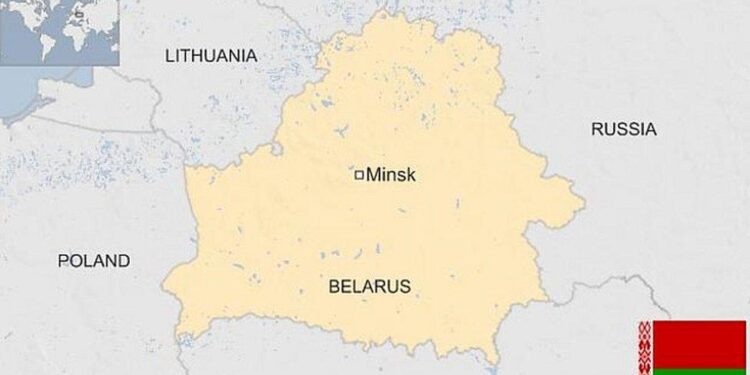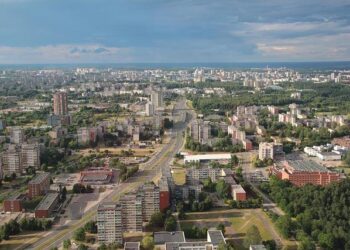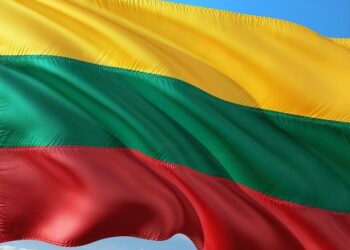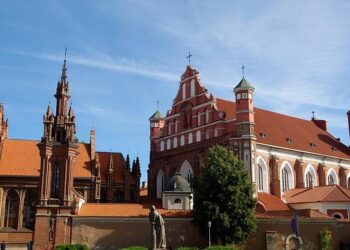Belarus has released 52 prisoners, Lithuanian President Gitanas Nausńóda announced Tuesday, marking a significant development in the tense relations between Minsk and its western neighbors. The unexpected move comes amid ongoing diplomatic efforts and international pressure on Belarus over human rights concerns and political repression. Details surrounding the identities of those freed and the motivations behind the release remain limited, but the event may signal a cautious step toward easing regional tensions.
Belarus Releases 52 Prisoners in Gesture of Diplomacy
In a surprising move that has caught the attention of international observers, Belarus has released a group of 52 prisoners, signaling a potential shift in its diplomatic stance. The action was confirmed by the Lithuanian president, who emphasized that the release marks an important step toward easing tensions in the region. The detainees, believed to be a mix of political prisoners and individuals held on various charges, were freed under conditions that suggest ongoing negotiations and a willingness to engage in dialogue with neighboring countries.
The list of those released includes individuals from diverse backgrounds, some of whom had been detained for extended periods. This gesture has been interpreted as an olive branch aimed at improving bilateral relations and possibly opening channels for further cooperation. Key points from the event include:
- Number released: 52 prisoners
- Confirmed by: Lithuanian president
- Possible motives: Diplomatic rapprochement, easing geopolitical tensions
- Next steps: Further talks anticipated between Belarus and neighboring states
| Category | Details |
|---|---|
| Duration of Detention | 3 months to 5 years |
| Primary Charges | Political dissent, minor legal violations |
| Release Location | Minsk Detention Centers |
| Expected Impact | Improved regional relations |
Implications for Belarus-Lithuania Relations and Regional Stability
The recent release of 52 prisoners by Belarus marks a subtle yet significant shift in the fragile dynamics between Minsk and Vilnius. This move has been interpreted by some analysts as an attempt to thaw relations amid mounting tensions over political dissent and border security. However, it also introduces questions about the underlying motivations, whether they are diplomatic gestures aimed at easing sanctions or strategic efforts to reassert influence in the region.
Key impacts on bilateral relations include:
- Potential opening for dialogue on cross-border cooperation and humanitarian concerns.
- Opportunities for reducing border tensions and enhancing mutual trust.
- Possibility of recalibrating Lithuania’s position within EU frameworks concerning Belarus.
- Risks of increased political leverage for Belarus amid ongoing regional conflicts.
| Aspect | Belarus’ Strategy | Lithuania’s Response |
|---|---|---|
| Diplomatic Engagement | Signaling willingness for dialogue | Careful monitoring with cautious optimism |
| Regional Security | Maintaining strong border control | Enhancing joint security measures |
| Political Leverage | Using humanitarian gestures strategically | Balancing EU solidarity with national interests |
Recommendations for Continued Dialogue and Human Rights Monitoring
To build on the recent release of 52 prisoners in Belarus, it is crucial to maintain open channels of communication between the Belarusian government, international human rights organizations, and neighboring states. Continued dialogue will not only foster transparency but also help to safeguard the rights of detainees and ensure clear protocols for future releases. Key stakeholders should prioritize:
- Regular monitoring visits by independent human rights observers
- Establishment of a neutral, third-party mechanism for reporting violations
- Facilitation of dialogue platforms that include civil society voices
In parallel, a robust system for ongoing human rights monitoring must be institutionalized to prevent backsliding and promote accountability. Governments and watchdog groups can collaborate by utilizing digital tools and verified reporting frameworks to track detention conditions and judicial fairness over time. The following comparative overview highlights the recommended roles:
| Entity | Primary Role | Tools & Methods |
|---|---|---|
| Belarusian Government | Ensure legal reforms and prisoner rights protections | Policy updates, improved detention standards |
| International NGOs | Independent verification and reporting | On-site visits, digital surveillance, report publishing |
| Neighboring States | Diplomatic pressure and support for dialogue | Facilitated meetings, bilateral talks |
Wrapping Up
The release of 52 prisoners by Belarus marks a significant development in the ongoing dialogue between the two nations, according to Lithuanian President Gitanas Nausńóda. As diplomatic efforts continue to unfold, both Belarus and Lithuania appear poised to explore further avenues for cooperation and reconciliation. Observers will be closely monitoring how this move influences regional stability and the broader geopolitical landscape in Eastern Europe.
















